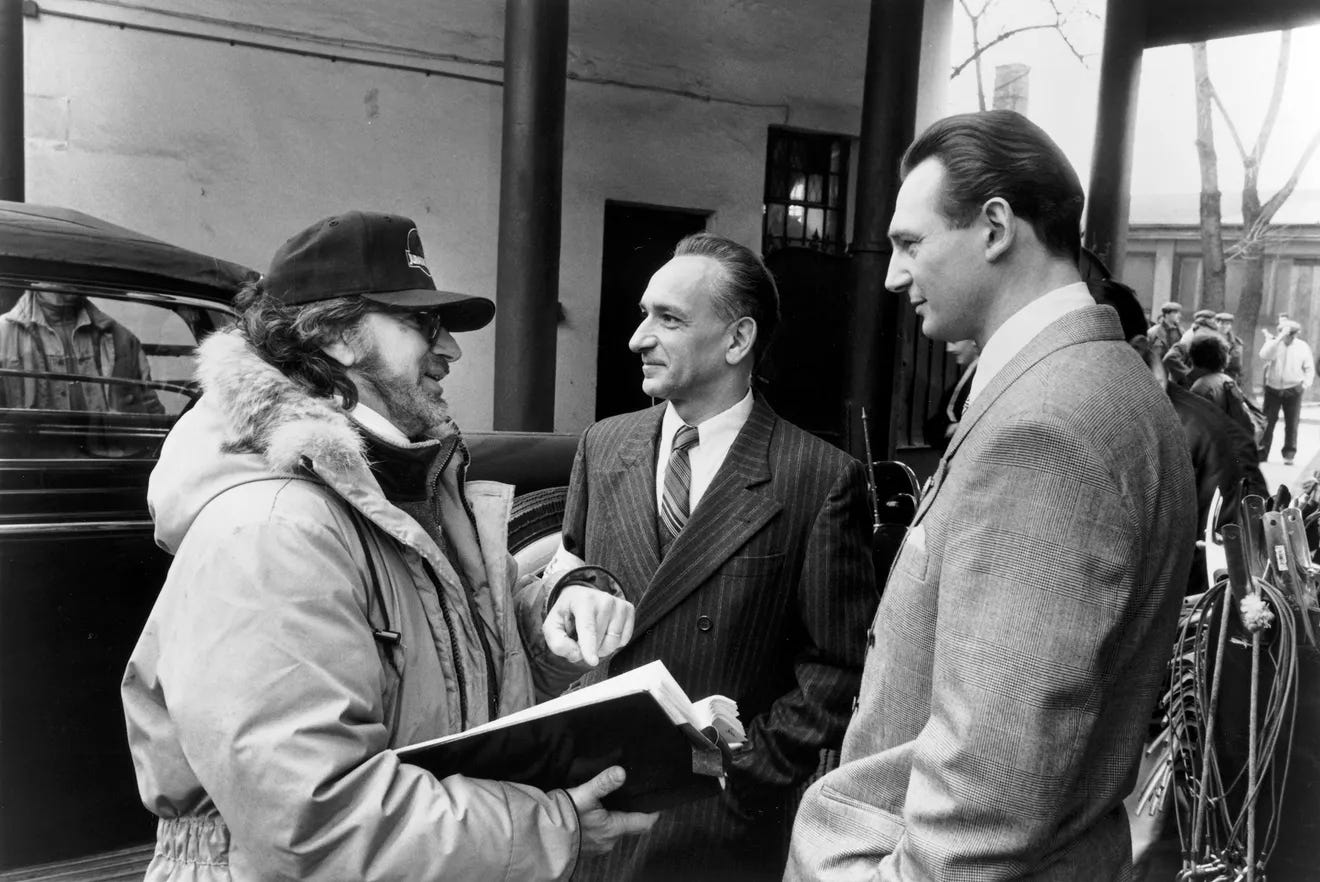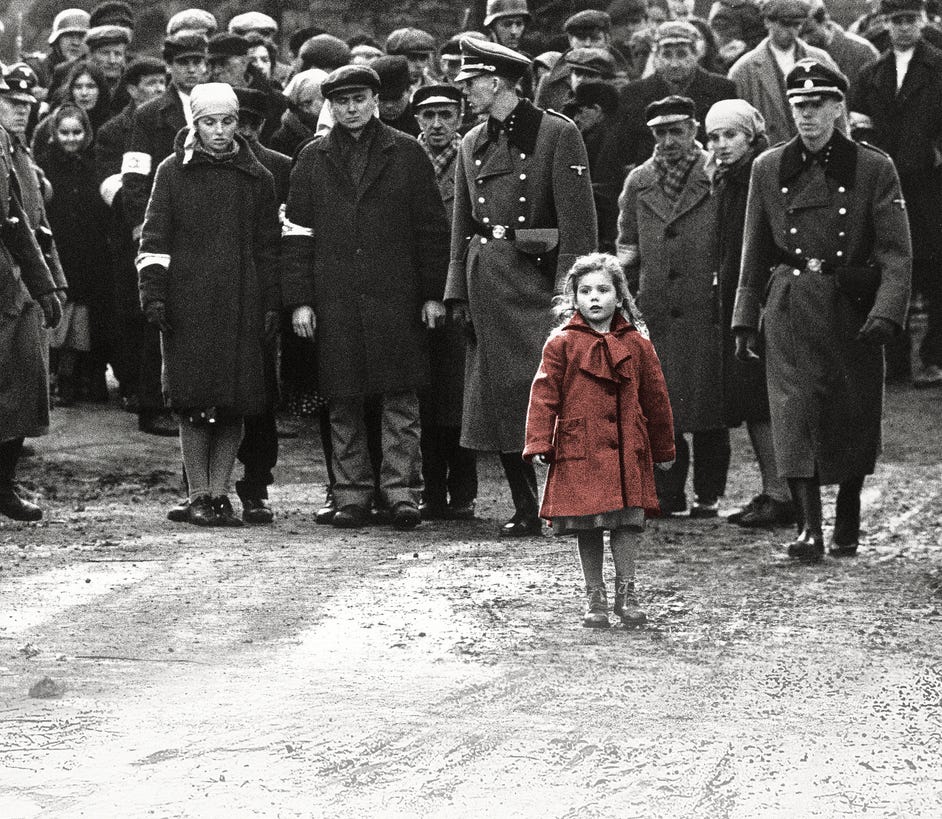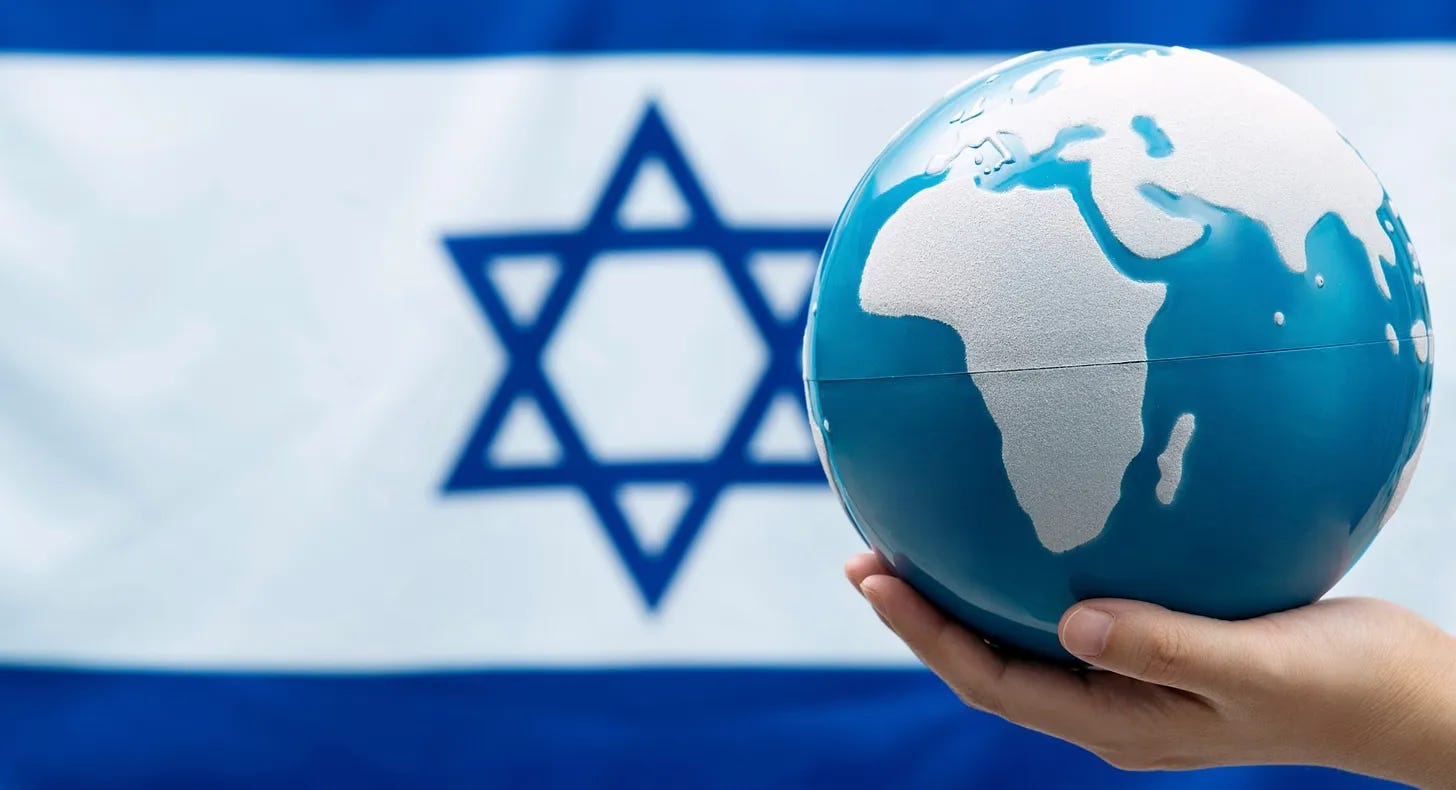The Greatest Jewish Movie Ever Made?
"I tell my students that a 'great movie' is subjective and defined by its aftermath. The longer the experience lingers in your consciousness, the better the film."
By Ross Kagan Marks

Not long ago, I spoke at my son’s synagogue in Paradise Valley, Arizona, about a Jewish themed film I made years ago called The Twilight of the Golds. The film stars Faye Dunaway, Brendan Fraser, Garry Marshall, Rosie O’Donnell, and Jack Klugman. It’s about an upper middle class Jewish family that faces deep-seated prejudices. It is the only Jewish film I have made and without question the one that is most personal. I even cast Dunaway because she looked like my own mother.
That night, I was asked by the Temple Sol El Jewish Film Club what I thought was the greatest Jewish film ever made. What a question! As a film professor at New Mexico State University, I tell my students that a great movie is subjective and defined by its aftermath. How long do you think about the film after you’ve first watched it? The longer the film lingers in your consciousness, the better it is. To answer this student’s question, I’d have to work my way up to the answer with some context; for the list of contenders is not short…
The Pianist (2002), directed by Roman Polanski, is based on the life of Władysław Szpilman, a Jewish pianist who survived the Holocaust in Nazi-occupied Warsaw. It depicts the struggles and resilience of one individual amidst the horrors of war. Aside from the glut of Oscar nominations it earned – the film is just unforgettable.
Fiddler on the Roof (1971), based on the Tony Award-winning musical, explores the life of “Tevye,” a poor Jewish milkman in pre-revolutionary Russia, and his challenges in upholding tradition against changing times. The music alone makes it an iconic film in the annals of Jewish cinema.
Life is Beautiful (1997), directed by and starring the Italian comedic actor Roberto Benigni, tells the story of a Jewish father who uses his wit, humor, and imagination to shield his young son from the horrors of a concentration camp during the Holocaust. The movie is a perfect example of just how subjective the art form can be: While some critics and moviegoers were offended by Benigni’s use of his comedic skills to tackle terribly fraught themes, tons of other viewers were enthralled – including Oscar voters who honored the star with Best Actor and Best Director.
Yentl (1983) is another landmark Jewish movie that tempers loss and horror with humor and love. Directed, co-written, and starring Jewish luminary Barbara Streisand, the musical drama follows the journey of a young Jewish woman who disguises herself as a man to study Torah, challenging traditional gender roles.
Of course, we’ve hardly scratched the surface here. Timeless Jewish films have been made by illustrious Jewish artists going all the way back to the early days of the industry: Billy Wilder, Otto Preminger, Norman Jewison, Milos Forman, Mel Brooks, the Coen Brothers, Sydney Pollack, Barry Levinson, Sam Raimi…
Having said all of that, for me there is no Jewish film that tops Schindler's List (1993), directed by Steven Spielberg – arguably Hollywood’s greatest (Jewish) director of all time. Again, subjective.
Last month marked the 30th anniversary of the release of Schindler’s List, as well as Spielberg’s 77th birthday. Though the film first hit theaters in 1993, its message and influence have never been timelier as Jews around the world struggle with a growing wave of oppression, repression, and antisemitism.
Spielberg’s masterpiece is based on the epic historical novel by Thomas Keneally that tells the true story of Oskar Schindler, a German industrialist who saved over a thousand Jewish lives during the Holocaust. The film's greatness lies in its ability to educate, empathize, and inform audiences about the atrocities of the Holocaust – while at the same time showcasing the resilience of the Jewish people.
First and foremost, it is worth acknowledging the movie’s historical accuracy. Spielberg took enormous care to depict the Holocaust with sensitivity and authenticity, using black and white cinematography to evoke a documentary-like realism. The attention to detail, costumes, and set design all contribute to an immersive experience. When I watch Schindler’s List, it’s as close as I ever get to feeling like I have even a distant grasp of what living in that nightmare must have felt like. This was Spielberg’s goal, and he has described why it was so painstaking to make:
“Schindler’s List took me over a decade to do simply because I recognize its importance. I recognize also the extreme damage that it could do if it was not made right. If it didn’t acquit the experiences of the Holocaust survivors with honor and remembrance, then it would do more harm than good. And so the responsibility for me was daunting, so daunting it put me off the project for almost ten years until I was, I guess, emotionally ready.”
Schindler's List also excels in its storytelling and character development. The narrative is driven by the transformation of Oskar Schindler, beautifully portrayed by Liam Neeson. At the beginning, Schindler is a self-centered opportunist, but as the film progresses, he undergoes a moral awakening and risks everything to save as many Jewish lives as possible. The character arc showcases the power of an individual's actions and the potential for redemption, making Schindler a relatable and inspirational figure.
As well, Spielberg’s portrayal of Jewish characters is deeply respectful and humanizing – which is especially noteworthy given the current situation in Israel and the Middle East. The film tells the stories of those who endured the Holocaust, highlighting their astounding strength and resourcefulness in the face of unimaginable horrors. By focusing on individual experiences, Schindler's List personalizes the immense tragedy of the Holocaust and ensures that the victims are not reduced to statistics – but seen as real people with families, hopes and dreams.
Another aspect that sets Schindler's List apart is its cinematography. Spielberg's direction, combined with Janusz Kaminski's (also Jewish) stunning cinematography, lends the film a visual and emotional impact that lingers in the viewer's mind long after the closing credits. The use of symbolism, such as the girl in the red coat, powerfully conveys the magnitude of the Holocaust and the contrast between innocent lives and the atrocities being committed upon them.
John Williams' haunting score deserves recognition as one of the most memorable and emotionally resonant soundtracks ever composed for film. It enhances the storytelling, heightening the tension and evoking a range of emotions, from sorrow to hope.
Schindler's List is not only a masterful work of cinema but also a vital historical document that educates viewers about the Holocaust. It serves as a reminder of the importance of remembering and learning from humanity's darkest moments so that such atrocities are never repeated. “Never Again Is Now” has never felt more resonant to me than upon a recent viewing of the film.
There are those in this historical moment who are questioning the effectiveness of decades of storytelling about Hitler’s genocide after having witnessed the horrors of October 7 and the highest number of murders of Jews in a day since the Holocaust. But at the very same time, an argument can be made that the legacy of “Never Again” has helped to stave off any kind of mass assault that even approaches the level of assembly line mass murder that the Jews suffered during the Shoah.
To be sure, interpreting history can sometimes feel as subjective as choosing a favorite movie. But what I know for sure is that I’ll never stop trying to make films geared toward educating by presenting humanity’s touchstones. By that measure, Schindler’s List will always be my gold standard.
Ross Marks is a Writer, Producer and Director who teaches film at New Mexico State University. He is the founder of the Las Cruces Int’l Film Festival.
From unpacking history and politics to navigating the nuances of family and personal relationships to finding the human angle on sports and entertainment — plus our unsparing take on what’s happening in the Jewish world — the canvas at JEWDICIOUS is limitless! JOIN US!!






